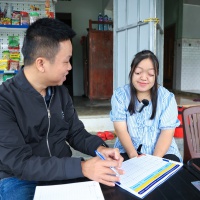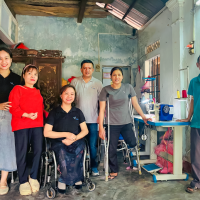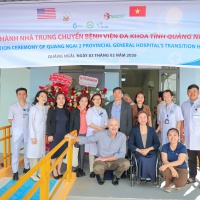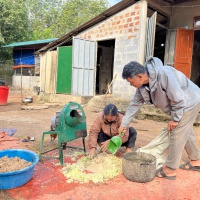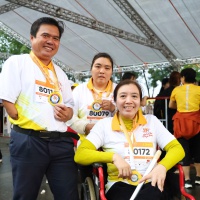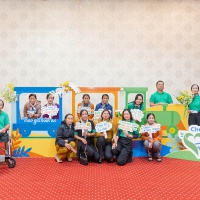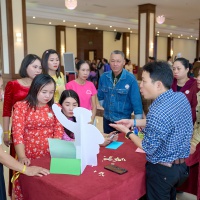On August 12, 2021, the Ministry of Labour - Invalids and Social Affairs (MoLISA) in coordination with the United Nations Entity for Gender Equality and the Empowerment of Women (UN Women) and the Australian Embassy in Viet Nam held a virtual conference on the “Final Review of the National Strategy on Gender Equality 2011-2020 and Implementation of the National Strategy on Gender Equality 2021-2030”.
The conference was attended and chaired by Ms. Nguyen Thi Ha, Deputy Minister of the MoLISA; Ms. Robyn Mudie, the Australian Ambassador to Vietnam; and Ms. Elisa Fernandez Saenz, Representative of UN Women in Viet Nam. Other participants were Ambassadors, representatives of departments, ministries, sectors, central mass organizations, localities, and international organizations.
This activity aimed to review the performance of the National Strategy on Gender Equality 2011-2020 (NSGE 2011-2020) at all levels, sectors, and localities as well as set out the targets for the National Strategy on Gender Equality 2021-2030 (NSGE 2021-2030).
In her opening remarks delivered at the conference, Ms. Ha highlighted: Thanks to the efforts of the whole political system, after 10-years of NSGE implementation, Vietnam has achieved numerous encouraging results, contributing to reducing gender disparities in all spheres and making a positive contribution to the socio-economic development process of the country. Particularly, the rates of female members elected to the 15th National Assembly and People's Council at different levels for the 2021-2026 tenure are 30.26% and nearly 30% respectively, which manifests the efforts of the system in promoting gender equality in Vietnam.
.jpg)
Photo: Ms. Elisa Fernandez Saenz, Representative of UN Women in Viet Nam.
As the United Nations agency providing technical assistance in the process of formulating the NSGE 2021-2030, Ms. Saenz said on behalf of UN Women in Viet Nam: “The review on the NSGE implementation over the last 10 years has indicated the necessity to ensure financial resources for gender equality, particularly through investment expenditure sourced from the state budget for adequate funding to realize the NSGE objectives. To do so, it is important to ensure that NSGE objectives will be properly mainstreamed in sectorial and local plans, as well as in national target programs. Viet Nam is also advised to make targeted investments in changing social norms in order to advance gender equality, which has been a key component to promote gender equality experienced by many countries worldwide. This has also constituted the initial objective of NSGE 2021-2030.”
Congratulating the Government of Vietnam on the dissemination of the NSGE 2021-2030, Ms. Mudie said: “There are opportunities and challenges for the advancement of women and girls in the coming decade, including issues related to the aging population in Vietnam, the Fourth Industrial Revolution, and job automation. The strategy will also continue to address longstanding issues such as perceptions of women's leadership capacity and societal norms that devalue women."
Throughout the conference, participants focused on discussing and evaluating the achieved results as well as the shortcomings in the NSGE 2011-2020 implementation, and at the same time proposing breakthrough solutions and initiatives to successfully execute the NSGE 2021-2030 and promote gender equality, moving towards sustainable development by 2030.
In an attempt to encourage greater contributions to the success of the NSGE in the next period, the MoLISA awarded certificates of merit to 154 groups and 156 individuals with outstanding achievements in directing and implementing the National Strategy on Gender Equality for 2011-2020, the National Action Program on Gender Equality for 2016-2020, and the Gender-Based Violence Prevention and Response Project for 2016-2020.
At the end of the conference, objectives and targets under the NSGE 2021-2030 were set out in alignment with the socio-economic development situation in the new period of the country and international economic integration towards the successful realization of the sustainable development goals by 2030.
